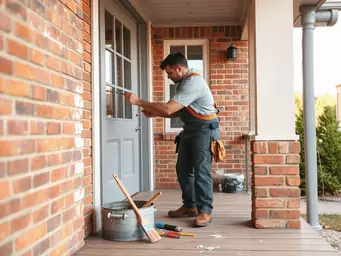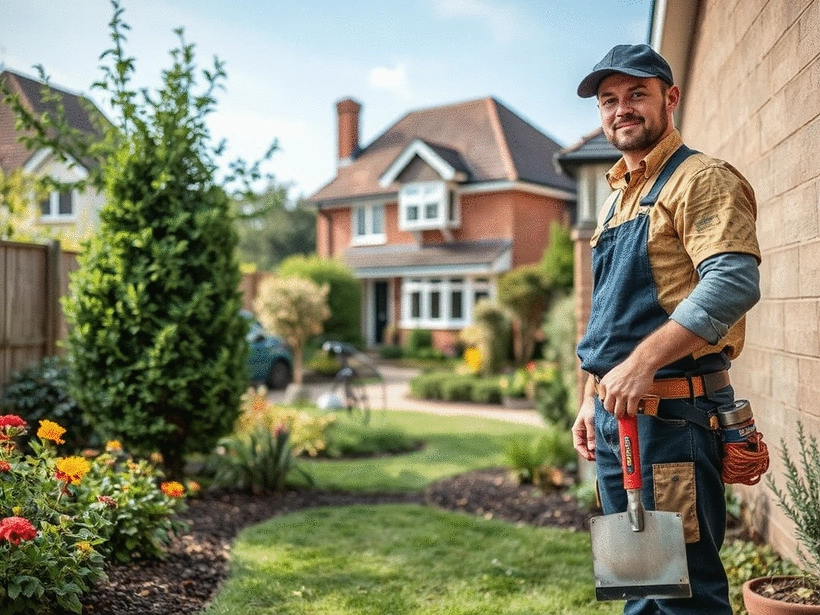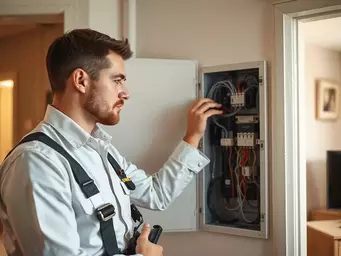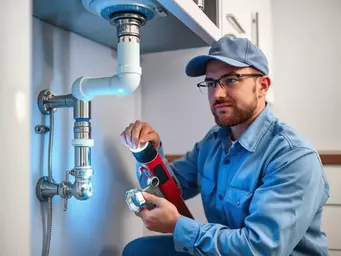Shower Leaking? Find Common Causes
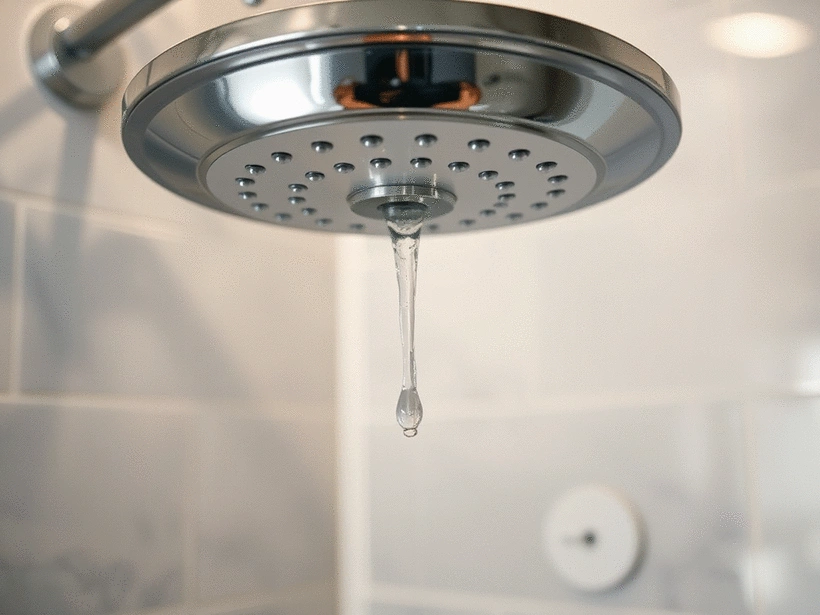
Addressing a leaking shower isn't just about fixing a nuisance; it’s crucial for safeguarding your home from costly damage. Water leaks can lead to mold, structural issues, and significant repair bills if left unchecked. So, how do you spot and solve these problems before they escalate?
What You Will Learn
- Recognize early signs of a leaking shower, such as water stains and dripping noises.
- Identify common causes of leaks, including worn washers, mineral buildup, and loose fixtures.
- Understand the impact of high water pressure and how to manage it to protect your shower system.
- Learn the importance of regular inspections and maintenance to prevent future leaks.
Common Shower Leak Causes and Solutions
Understanding the reasons behind a leaking shower can help in timely identification and repair. The following outlines key causes and their typical remedies.
Worn Washers & O-Rings
Degrade over time due to pressure and heat, causing drips and leaks around faucet handles.
Solution: Replace partsMineral Buildup & Clogged Nozzles
Hard water deposits can reduce water flow and cause improper spraying leading to leaks.
Solution: Vinegar soakLoose/Damaged Fixture Parts
Handles, showerheads, or faucets can become unaligned, causing water to escape.
Solution: Tighten/replaceFaulty Diverter Valves
Malfunctioning valves can lead to drips from the tub spout even when the shower is in use.
Solution: Repair/replace valveHigh Water Pressure
Excessive pressure strains the system, causing damage and leaks in fixtures.
Solution: Check pressure regulatorLeaking Grout or Caulk
Cracked or deteriorated seals allow water to seep behind tiles or fixtures.
Solution: Re-caulk/re-groutShower Door Misalignment
Gaps or worn seals on doors can lead to water pooling outside the shower.
Solution: Adjust/replace sealsWorn Showerheads & Faucets
These components can wear out, leading to drips or pooling around the fixtures themselves.
Solution: Tighten/replace partUnderstanding Shower Leaks: Why Is My Shower Leaking?
As a homeowner, encountering a leaking shower can be both frustrating and concerning. It's not just about the water dripping away; it can lead to bigger issues down the line, such as water damage and mold growth. Identifying the symptoms early can save you time and money!
Some common signs of a leaking shower include:
- Water stains on the ceiling or walls
- Dripping sounds when no one is using the shower
- Puddles of water around the shower area or pooling on the floor
If you notice any of these symptoms, it's essential to take action. Ignoring them could mean more extensive repairs later on! Let's dive deeper into what might be causing those pesky leaks.
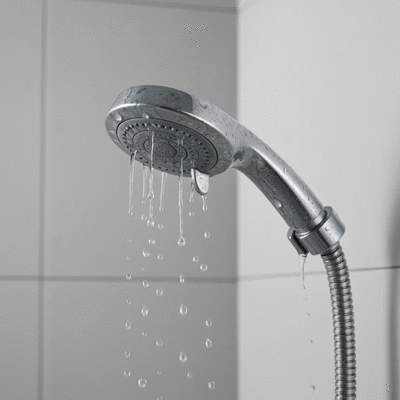
Common Causes Behind a Leaking Shower
Worn Washers and O-Rings: A Major Culprit
One of the most common reasons for a leaking shower is worn washers and O-rings. These small but vital components form seals that prevent water from escaping. Over time, they can degrade due to pressure and heat, leading to leaks.
Look for signs of wear such as:
- Visible cracks or tears in the washers
- Water escaping around the faucet handles
- Frequent dripping even when the shower is turned off
Replacing these parts is often a simple fix that can save you from larger issues down the road!
Mineral Buildup and Clogged Nozzles
Another factor that can contribute to a leaking shower is mineral buildup from hard water. This buildup can clog showerheads and nozzles, causing water to flow improperly and potentially create leaks.
If you notice a reduced water flow or uneven spraying from your showerhead, it might be time to check for mineral deposits. A simple vinegar soak can often clear up these issues effectively!
Loose or Damaged Parts in Shower Fixtures
Loose or damaged components in your shower fixtures can also lead to leaks. Items such as handles, showerheads, and even the faucet can become unaligned over time, causing water to escape.
To check for these issues, look for:
- Loose screws or fittings around the shower components
- Wobbling showerheads or handles
- Visible gaps where water can escape
Sometimes, a quick tightening can solve the problem, so don’t hesitate to inspect these areas!
Faulty Diverter Valves: How They Contribute to Leaks
Diverter valves play a crucial role in directing water from the tub spout or showerhead. When these valves malfunction, they can lead to leaks.
If you notice water dripping from the tub spout while using the shower, it could indicate a faulty diverter. Addressing this issue promptly can help you maintain a leak-free shower!
High Water Pressure and Its Impact on Shower Integrity
Excessive water pressure can put undue strain on your shower system, leading to leaks. If you've recently had work done on your plumbing or notice a sudden increase in water pressure, it might be time to check your pressure regulator. Maintaining appropriate water pressure is essential for preventing leaks and conserving water, as highlighted by the San Francisco Public Utilities Commission, which emphasizes the importance of promptly addressing leaks to avoid water waste.
It’s essential to ensure that your water pressure is within the acceptable range to avoid damaging your fixtures and creating leaks!
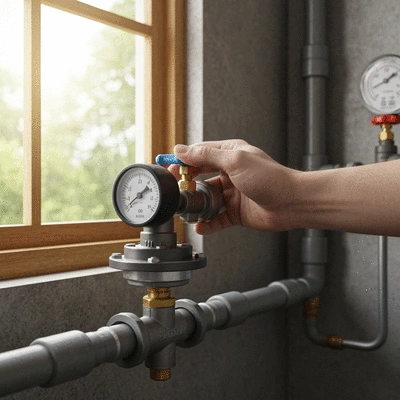
Leaking Grout or Caulk: Hidden Sources of Moisture
Failing grout or caulk around your shower can also be a hidden source of leaks. Over time, these materials can crack or deteriorate, allowing water to seep behind tiles or fixtures. The BC Housing Maintenance Matters guide underscores the significance of maintaining seals and caulking to prevent water ingress and potential structural damage.
Regular inspections of your grout and caulk can help catch these issues early. If you spot damage, re-caulking or re-grouting can be a straightforward solution!
Shower Door Misalignment: A Common Overlooked Issue
Misaligned shower doors can often be the source of unexpected leaks. If you find water pooling outside your shower, it could be a sign that your doors aren't sealing properly.
Check for:
- Gaps between the door and the frame
- Stuck or difficult-to-close doors
- Visible wear on the door seals
Adjusting or replacing seals on your shower doors can help prevent water from escaping!
Understanding Showerheads and Faucets: Their Role in Water Leakage
Lastly, don’t overlook your showerheads and faucets as potential sources of leaks. These components are often subjected to wear and can develop leaks at any point. The EPA's WaterSense program encourages homeowners to participate in "Fix a Leak Week" to identify and repair household leaks, emphasizing that even small drips can lead to significant water waste over time.
If you notice drips or pooling water around your fixtures, inspect them for damage. Sometimes, just tightening a connection or replacing a part can restore functionality!
Pro Tip
Did you know? Regularly checking your shower fixtures for wear and tear can prevent leaks before they start! Make it a routine part of your home maintenance to inspect washers, O-rings, and seals every few months. This small step can save you from costly repairs and water damage in the future!
Frequently Asked Questions About Shower Leaks
Q1: What are the early signs of a leaking shower?
A1: Early signs include water stains on ceilings or walls, dripping sounds when the shower is not in use, and puddles of water around the shower area or on the floor.
Q2: What are the most common causes of shower leaks?
A2: Common causes include worn washers and O-rings, mineral buildup in nozzles, loose or damaged fixture parts, faulty diverter valves, high water pressure, and failing grout or caulk.
Q3: How can high water pressure affect my shower?
A3: Excessive water pressure can strain your shower system, leading to damage and leaks in fixtures. It's important to ensure your water pressure is within an acceptable range to prevent these issues.
Q4: Why is it important to address shower leaks promptly?
A4: Addressing leaks promptly is crucial because unchecked water leaks can lead to costly water damage, mold growth, and structural issues in your home, which are much more expensive to repair later.
Q5: What simple maintenance tips can prevent future shower leaks?
A5: Regular maintenance includes inspecting for water stains, checking seals, washers, and O-rings for wear, cleaning showerheads and faucets to prevent mineral buildup, and monitoring water pressure.
Wrap-Up: Keeping Your Shower in Top Condition
Addressing shower leaks promptly is crucial for maintaining the overall health of your plumbing system. Ignoring these issues can lead to expensive repairs and potential water damage that could affect other areas of your home. By staying vigilant and regularly inspecting your shower, you can catch small problems before they escalate!
Remember, maintaining your shower isn’t just about fixing leaks; it’s also about ensuring that all components are functioning properly. Regular care can save you time and money in the long run. So, let’s keep those showers running smoothly!
- Inspect for water stains or damp patches regularly.
- Check seals, washers, and O-rings for wear and tear.
- Clean showerheads and faucets to prevent mineral buildup.
- Monitor water pressure to avoid undue stress on fixtures.
At BigFunction Property Maintenance, we believe that a little proactive care goes a long way. By taking these simple steps, you’re investing in the longevity of your plumbing and the comfort of your home!
Call to Action: Take Control of Your Shower Maintenance Today
Now is the time to take the reins on your shower maintenance! Start with a thorough inspection of your fixtures and be on the lookout for any signs of leaks. Don’t hesitate to reach out for professional help if you encounter anything beyond your expertise. Trust me, tackling issues early is always better than waiting for them to become major headaches!
Ready to get started? Consider scheduling a quick consultation with us at BigFunction Property Maintenance. We're here to offer you the best advice and services for keeping your shower—and your entire home—in top shape! Let’s work together to ensure your plumbing remains reliable and efficient.
Recap of Key Points
Here is a quick recap of the important points discussed in the article:
- Regularly inspect for water stains or damp patches to catch leaks early.
- Check seals, washers, and O-rings for wear and tear, as they are common leak sources.
- Clean showerheads and faucets to prevent mineral buildup that can cause leaks.
- Monitor water pressure to avoid undue stress on fixtures, which can lead to leaks.
- Inspect grout and caulk regularly to identify hidden sources of moisture and prevent water damage.


